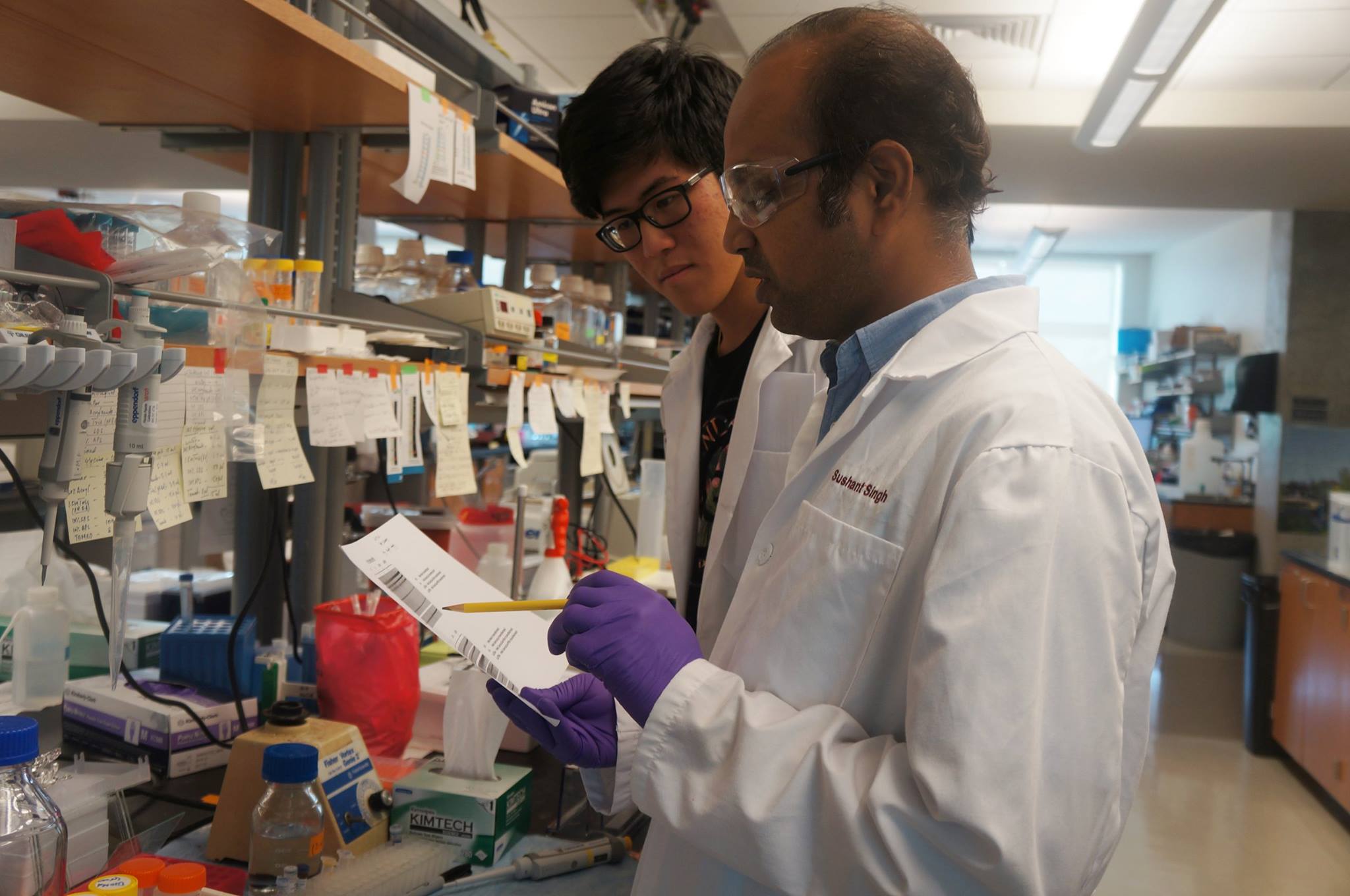Summer scholars investigate future careers in science and medicine.
Nearly 28 percent of high school freshmen declare interest in a STEM-related field. That’s roughly one million students each year. But unfortunately, of these students, 57 percent will lose interest by the time they graduate from high school.
Summer internships are often sought for the boost they give to a resume but they also provide valuable direction for students unsure of how to chart a course toward a scientific career.
As Central Florida’s high school graduates prepare to head off to college, there is a small group who may have a leg up on their peers. Students who donned lab coats last summer at SBP Lake Nona, took part in an immersive lab experience to try their hands full-time at what could be a future career in a STEM-related field. Already academic stars, the practical experience fueled their passion for research and medicine.
“I learned a great deal about bench research techniques which I believe helped me stand out to admissions officers,” said Andrew Tiu, a Bishop Moore High School graduate who is headed to Georgetown University in the fall. “My internship also helped me learn about the mentality and motivation behind scientific research. It truly gave me a taste of the work I hope to take up in the future.”

Then there’s Kathleen Garvey from Trinity Preparatory School who plans to pursue a special focus in research at Johns Hopkins; she acknowledges her lab mentor Peter Crawford, PhD, for helping ignite that passion. “My internship made me certain about wanting to study the life sciences and actively pursue more research opportunities.”
Other interns were similarly motivated. Veronica Eslava (University) and Saumya Kapoor (Cypress Creek) will attend University of Florida; Prianca Nagda and Rakhi Patel (Trinity Prep) are destined for Georgetown and University of Miami; and Steven Jones (East River) will attend University of Central Florida.
Is a career in science for you? What students should know.
We asked our faculty, “What advice would you give to high school and college students who are interested in research as a career?” Here are their top ten tips:
1. Develop a solid science foundation during high school—no need to focus on highly specialized courses but build a base of math, chemistry, physics and biology.
2. Take elective courses that offer a lab experience. It can be anything that allows you to set up small experiments or to be involved in a science project.
3. Join extracurricular groups that have an interest in science.
4. Volunteer for a few weeks or a summer at a “real” research place, such as a laboratory at a university or college.
5. Read general science articles written for non-specialists such as Scientific American. See what area triggers your interest.
6. The earlier you get your hands wet in the lab, the better. Start generating data and publishing papers ASAP. In this field you will be judged by the quantity and quality of your publications.
7. Besides lots of biology and chemistry, biomedical research can also involve plenty of physics, math, and computer science—stay open to linking various disciplines.
8. Education is expensive and life science careers may need additional studies after obtaining a bachelor’s degree.
9. Talk to a lot of people that have pursued a science career.
10. Enroll in your dream subject but look for cross-training opportunities.